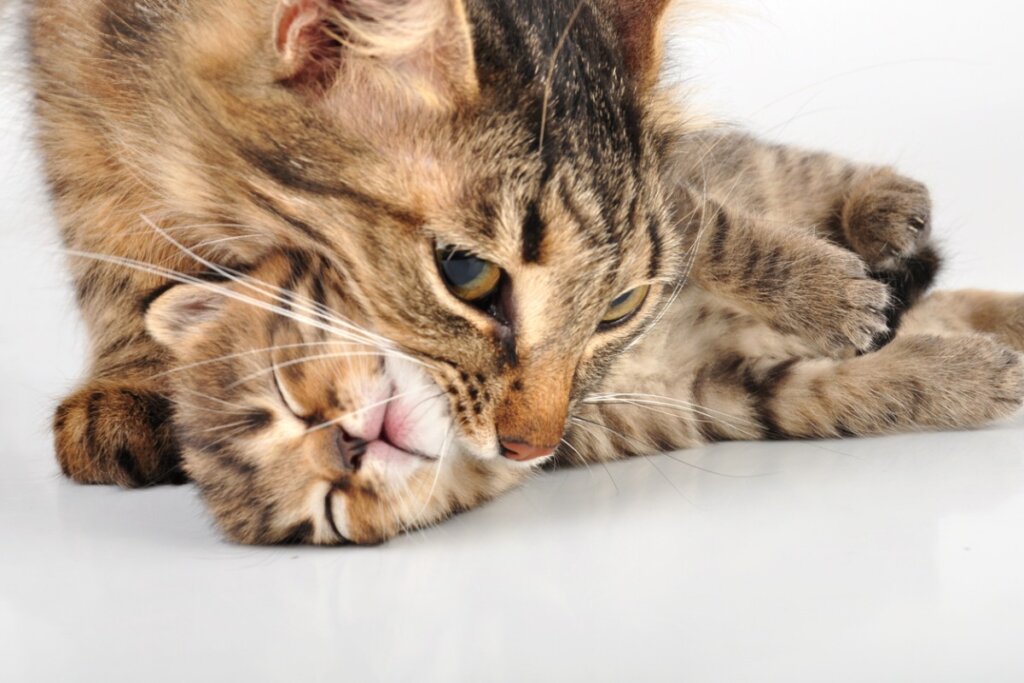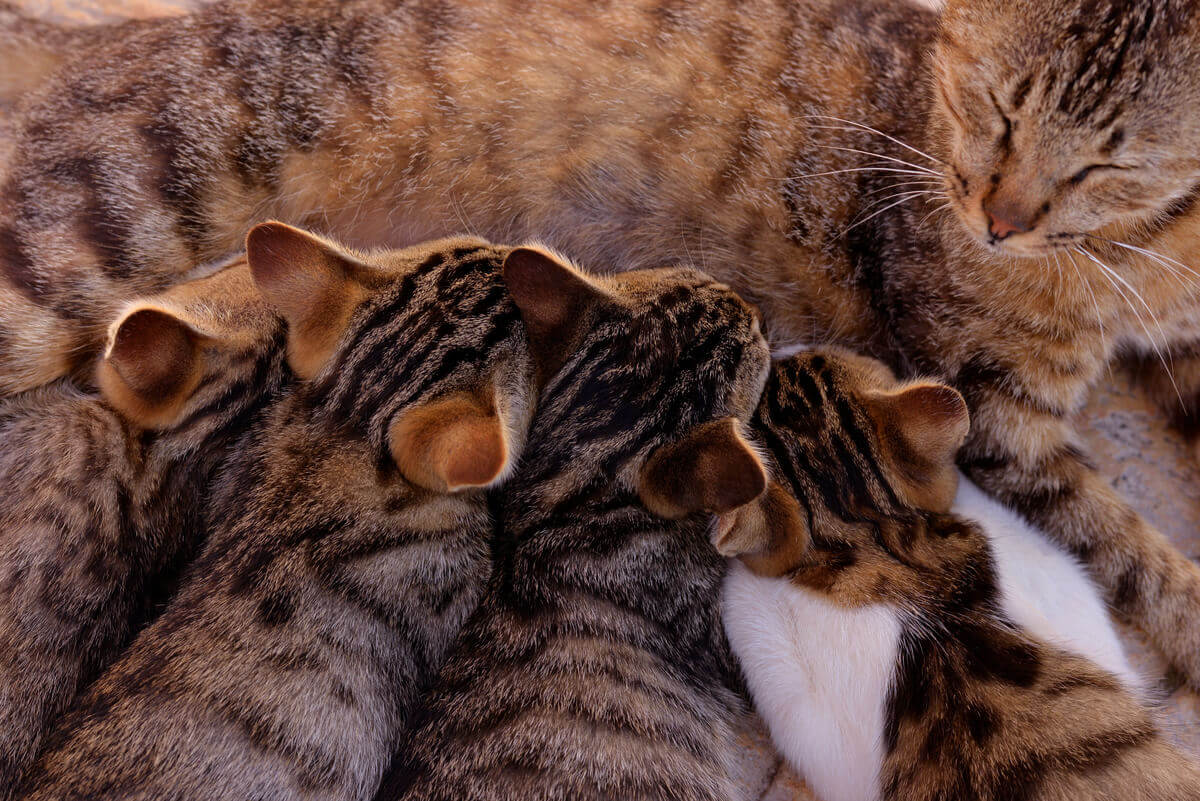Why Do Cats Move Their Kittens Around?

It’s common to see how often cats move their kittens around in the days after giving birth and even take them to their owners. It’s a behavior that puzzles people, as it doesn’t seem to have an apparent reason.
In this article, you have a full explanation of this behavior to help you understand it thoroughly. If you live with a cat that’s just given birth, soaking up knowledge in this regard will be useful to help you to better carry the most delicate moments during the care of the newborn kittens. Keep reading!
Why do cats transfer their kittens?
Cats, although they’ve been domesticated for thousands of years, still retain certain instinctive behaviors that are typical of their wild ancestors. The most characteristic example of this statement is the hunting instinct, which domestic cats turn into games and ambushes around the house.
When it comes to maternal care behavior, the cat also acts according to her natural impulses. In the wild, a female that is about to give birth will look for a shelter where she can hide and not be disturbed at this vulnerable moment.
After the birth, and with the kittens in the world, her next attitude will be one of vigilance, as the kittens are born totally dependent. For this reason, the mother remains alert at all times to defend her offspring against possible attacks by predators.
Thanks to this instinct, cats move their kittens from one shelter to another as they move to find food. When they have to leave the litter alone to go hunting, they will constantly move the litter in order to throw predators off the scent and not stray too far from the litter.
Cats move their kittens from one place to another for simple protection. It’s an act that’s hardwired into their genetic code.
Why do they do it at home too?
After reading this, I’m sure you’ve considered the fact that your home is a danger-free place where your feline has lived for years without any problems. So why do cats move their kittens even in a safe environment?
It’s important to be aware that your cat doesn’t perceive the world in the same way as you do. In addition, felines are susceptible to stress, so a delicate situation such as raising a litter will awaken her instincts of mistrust even if all goes well at first glance.
Whenever she senses any sign of danger (or what she interprets as dangerous), she’ll pick up her kittens and move them. Although it’s impossible to completely prevent the female from this behavior, it’s helpful to let her make the nest wherever she prefers, as she’ll be prone to move the kittens less.
Why do cats take their kittens to their owners?
If it seems a bit strange when to see cats moving their kittens from one place to another, the sensation is increased when they take them to their owners. The explanation for this is that the adult feline sees her human as a figure that conveys security, so she associates them with a suitable place where she can leave her offspring.
However, you shouldn’t handle the kittens too much or allow your cat to leave them with you for long periods of time, as there is a slight risk of rejecting them by impregnating them with your scent. However, this doesn’t usually happen.
Return the kittens to their mother when she’s resting, or move the nest to where you spend more time in the house.
Is this behavior pathological?
When cats move their kittens around, it isn’t necessarily a problem, as long as the cat isn’t suffering from stress or anxiety. On the other hand, if you have a very strong bond with your feline, there’s a possibility that she may develop an emotional dependency during the nursing period.
If any of the kittens have a deficiency or malformation, it’s also possible that the mother will eat them. This can also happen if the cat perceives too much danger to the litter. Killing one’s own offspring, although it sounds horrifying to humans, is a natural mechanism to recover the biological resources invested in reproduction.
At the same time, if the cat moves the kittens around a lot and insists on bringing them to you, the kittens may be in danger of being abandoned by the mother because she feels stressed.

Spay and Adopt
If you’re the director of an animal shelter or work with shelters, it’s probably not the first time you’ve encountered a pregnant female that needs to be placed in a home. Usually, animal welfare groups are able to find a family for the kittens.
However, if you’re considering breeding your cat, we strongly recommend that you think very carefully about whether you can take responsibility for the kittens. Do you have a suitable home where they can be born? Are you going to be able to bear the costs and efforts necessary to assist the cat during the whole process? Your decision won’t only affect your life, but your cat’s life and the lives of all the kittens that will come into the world.
All cited sources were thoroughly reviewed by our team to ensure their quality, reliability, currency, and validity. The bibliography of this article was considered reliable and of academic or scientific accuracy.
- Bueno, R. Á. (2020). Etología felina: Guía básica sobre el comportamiento del gato. veterinaria.
- Feldman, H. N. (1993). Maternal care and differences in the use of nests in the domestic cat. Animal Behaviour, 45(1), 13-23.
- Bánszegi, O., Jacinto, E., Urrutia, A., Szenczi, P., & Hudson, R. (2017). Can but don’t: Olfactory discrimination between own and alien offspring in the domestic cat. Animal cognition, 20(4), 795-804.